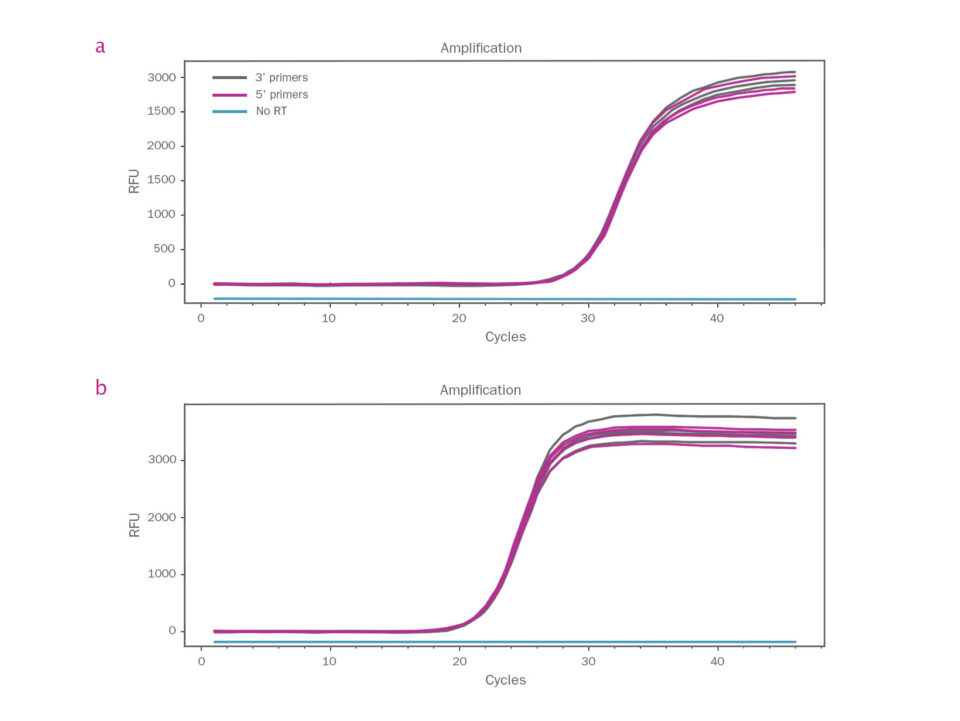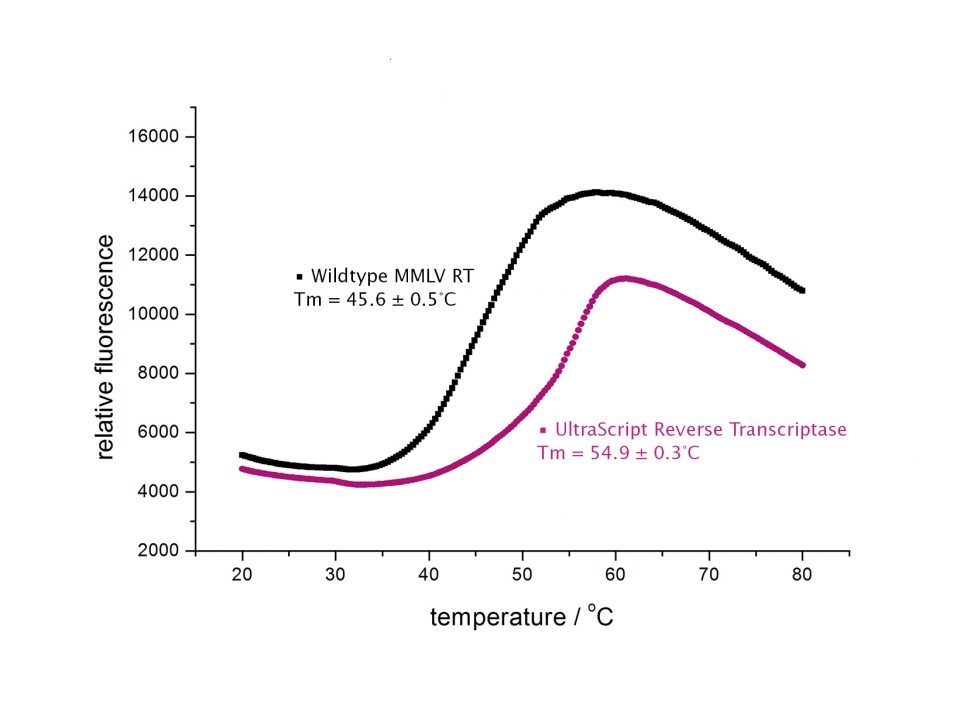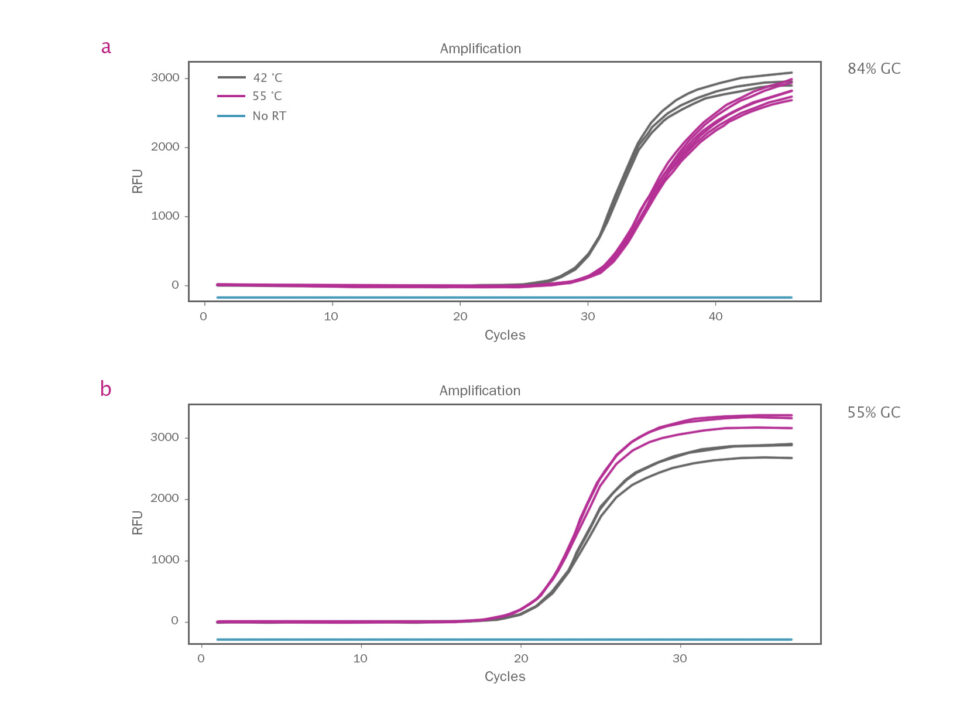Our UltraScript® Reverse Transcriptase and cDNA Synthesis Kits are packed with features to provide the end-user with as many benefits as possible, simplifying their research and minimising the potential for handling errors in experiments. Read on to see how each feature can benefit your research workload.
Unbiased representation of 5′ and 3′ mRNA transcript ends
Ensures complete and accurate cDNA synthesis from full-length RNA transcripts, capturing both the 5′ and 3′ ends without bias. This enables researchers to profile gene expression comprehensively and confidently, particularly for applications like transcriptome analysis or RNA-seq.
Reduced RNase H activity
Minimises degradation of RNA during first-strand synthesis, preserving template integrity throughout the reaction. This results in longer transcripts, higher quality cDNA and improved reproducibility, especially when working with limited or degraded RNA samples.
Thermostable reverse transcriptase 45 °C to 55 °C
Performs reliably at elevated temperatures, helping to denature RNA secondary structures that can hinder cDNA synthesis. This enhances reverse transcription efficiency and fidelity, particularly for complex or GC-rich RNA templates enabling accurate quantification of different template types.
Advanced RNase inhibitor
Protects RNA from enzymatic degradation during the reverse transcription process, improving cDNA yield and quality. This is particularly valuable when working with precious or low-abundance RNA samples. Additionally, the inhibitor is premixed in all product formulations, thereby reducing handling time and the potential for pipetting errors.
High cDNA yields from as little as 4 pg total RNA
Delivers robust performance even with ultra-low input RNA, making it ideal for single-cell studies, rare sample types, or degraded clinical specimens. Users can achieve reliable gene expression data from minimal starting material.
Accurate reverse transcription of GC-rich templates
Effectively synthesises cDNA from RNA regions with high GC content, which are typically challenging due to stable secondary structures. This ensures complete transcript representation and avoids dropout of important gene regions.
Sensitive detection of low copy number transcripts
Enables reliable reverse transcription of transcripts expressed at very low levels, supporting applications such as early disease marker detection, rare transcript quantification, and single-cell analysis.
Advanced buffer chemistry including Mg and dNTPs
Optimised reaction conditions with pre-balanced magnesium and nucleotide concentrations ensure efficient enzyme performance and consistent results. This simplifies setup and reduces variability between reactions.
Both premixed or separate oligo cDNA synthesis kits available
Provides flexible formats to suit different experimental needs. Users can choose a convenient all-in-one mix for routine workflows or opt for separate components to customise reactions for complex or specialised applications.
Fast cDNA synthesis in 15 to 30 mins
Speeds up the reverse transcription workflow, enabling users to go from RNA to cDNA in as little as 15 minutes. This saves valuable time in high-throughput or time-sensitive experiments without compromising on cDNA quality.





